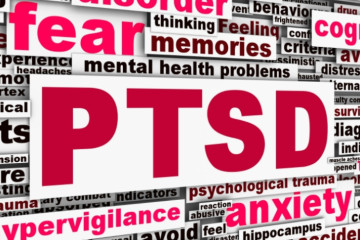How to Deal with Anxiety - Health Education
Everyone has experience with stress and anxiety, but not everyone knows how to deal with anxiety and stressful feelings. Anxiety can be caused by anything, from an upcoming presentation at work to a stressful life change like the death of a loved one. These tips will help you to deal with the dreaded physical and emotional sensations that come with anxiety.
Breathe
When your heart is pounding and your palms are sweating because you’re anxious, it’s because your fight-or-flight response is kicking into overdrive. To calm your racing heart, you can activate your sympathetic nervous system by using deep breathing techniques. One useful technique is the 4-7-8 breathing exercise: breathe in through your nose for 4 seconds, hold your breath for 7 seconds, and exhale through your mouth for 8 seconds. Repeat this three times, or until you feel calmer. Try to keep your breathing even, and if you feel lightheaded, take a break from the breathing exercise and sit down.
Journal
Sometimes, you might feel anxiety about a relationship or event in your life. Writing out your thoughts about a hard situation will help you to analyze a problem more clearly, and journaling about your emotions is a healthy release that can help relieve stress. If you’re anxious about making a decision, draft up a pro-con list and write about what emotion you feel when you imagine each possible outcome of the situation. Journals can also be used as a place to draw, which is another great way of relieving stress through creative expression.
Talk it out
Stress and anxiety can be made even worse when you bottle everything up inside and don’t share your feelings with anyone else. By talking about your emotions or your situation with someone else, you lift some of the burden of anxiety off of your shoulders. Find a trusted friend who you know will lend you a kind and thoughtful ear, and share with them what you’re struggling with. Sometimes, an outside perspective can help you make a stressful decision, and the comfort of a friend almost always lessens the intensity of the anxiety you feel. A true friend will likely be willing to listen, but be mindful of how much you’re turning to them for help. If you are dumping your problems on them without listening to their problems in return, or if you’re relying on them too much for support, talking it out with a counselor or therapist can be a valuable alternative.
Change your diet
When anxious, your first impulse might be to turn to comfort foods, but those kinds of snacks aren’t always the best ones for you. Antioxidant-rich foods like blueberries are good for relieving stress in your body, and the vitamin C in orange juice can help lower your blood pressure. Leafy greens full of magnesium are known for helping with anxiety, and before bed, you can never go wrong with a cup of chamomile tea to calm your nerves. Passionflower tea is also known to work well at helping to relieve anxiety.
Consider medication or therapy
Anxiety is something that everyone deals with, but some people deal with more intense or more frequent episodes than others. If you think that’s the case for you, talk to your doctor. Medication certainly isn’t for everyone, but if you experience frequent panic attacks or have unrelenting anxiety for a sustained period of time, checking to see if you have an anxiety disorder can be useful and important. Your doctor can prescribe you medication or refer you to a psychiatrist who might have more expertise. If you do have an anxiety disorder but feel like the medication option isn’t for you, you might also benefit from seeking a therapist who can provide you with coping skills catered to your specific experience with anxiety.
When developing a healthy and happy mind, breathing exercises, journaling, discussing your problems, changing your diet, and seeking medical or therapeutic intervention are all valuable ways of eliminating negative feelings and replacing them with positive ones. With these tips and an optimistic outlook, you’re bound to feel better fast.



